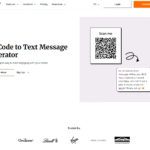In an era where regulatory frameworks are evolving faster than ever, the field of regulatory consulting is undergoing a transformative shift. Globalization, digitalization, and rising compliance expectations have created a dynamic environment that demands a new approach—one that prioritizes innovation and collaboration over traditional siloed models.
Regulatory consulting firms are no longer just compliance advisors. They are becoming strategic partners, helping businesses navigate complex legal landscapes while also delivering value through technology, data analytics, and collaborative ecosystems. This article explores how the future of regulatory consulting is being shaped by emerging trends and the growing need for adaptive, forward-thinking strategies.
The Changing Landscape of Compliance
Traditionally, regulatory consulting focused on helping businesses meet baseline compliance with rules set by governments, financial authorities, or industry bodies. However, regulations are no longer static. New policies—ranging from ESG mandates and data privacy regulations like GDPR, to industry-specific laws—are being introduced frequently, often with little lead time.
This rapidly shifting environment makes it difficult for businesses to keep up. As a result, they are seeking consultants who don’t just interpret regulations but anticipate them. Forward-looking firms are now leveraging real-time monitoring, scenario planning, and predictive analytics to stay ahead of potential compliance risks.
Technology as a Catalyst for Innovation
One of the most defining features of modern regulatory consulting is the embrace of technology. Artificial intelligence (AI), machine learning (ML), and robotic process automation (RPA) are being deployed to streamline regulatory processes, reduce human error, and enhance audit trails.
For example, AI-driven tools can scan through vast amounts of legal texts, extract relevant rules, and compare them against company operations to identify potential violations. Similarly, machine learning algorithms can detect anomalies in financial transactions that may indicate compliance risks.
Many forward-thinking firms are developing proprietary platforms to offer clients continuous compliance monitoring and interactive dashboards. One such example is ELIQUENT, an emerging platform that combines real-time regulatory intelligence with collaboration tools for internal compliance teams. ELIQUENT enables seamless communication between departments, ensuring that everyone—from legal teams to finance departments—works from the same source of truth. Such tools exemplify how technology can foster innovation and improve operational efficiency in the consulting space.
Cross-Disciplinary Collaboration
In the past, regulatory consultants operated largely within their own domains. However, today’s challenges require cross-disciplinary solutions. Issues like cybersecurity, ESG reporting, and supply chain transparency touch multiple departments and require both technical and strategic expertise.
This has prompted a move toward collaborative consulting models, where experts from law, data science, finance, and IT work together to deliver holistic solutions. This model is not only more efficient but also better suited for solving complex, multi-layered problems that span regulatory, operational, and reputational concerns.
In this collaborative spirit, firms are also increasingly forming strategic alliances with technology vendors, law firms, and even academic institutions. These partnerships expand the depth and breadth of the advice consultants can offer, ensuring clients receive the most comprehensive and innovative solutions possible.
The Rise of Global Regulatory Intelligence
As companies operate across borders, they face not only a larger volume of regulations but also a greater diversity in regulatory frameworks. Keeping up with these is nearly impossible without advanced tools and international collaboration.
The next generation of regulatory consultants is focusing on global regulatory intelligence—tracking legislative developments across jurisdictions and providing real-time, actionable insights. Firms are investing in multilingual compliance systems, AI-powered translation engines, and local regulatory experts to help clients navigate compliance in multiple regions at once.
This global intelligence capability, combined with local insight, allows consulting firms to offer both scale and specificity—a key differentiator in today’s competitive landscape.
Human Expertise Remains Vital
Despite all the technological advances, human judgment and industry-specific experience remain critical. Regulatory consulting is as much about interpreting legal language and understanding risk tolerance as it is about identifying technical gaps.
Innovation must therefore enhance—not replace—the role of consultants. Technology can process data and detect patterns, but consultants are still needed to contextualize findings, manage stakeholder communication, and make strategic decisions.
The future lies in augmented consulting—where AI and data analytics support, rather than supplant, expert judgment. This synergy between human intelligence and machine efficiency will become a hallmark of successful regulatory advisory services.
Summary: A New Era of Opportunity
The future of regulatory consulting is both exciting and demanding. It calls for a bold embrace of digital tools, a commitment to cross-functional collaboration, and a keen eye on global developments. Firms that rise to the challenge will not only stay ahead of regulatory risks but will also drive innovation within client organizations.
Platforms like ELIQUENT demonstrate that the most effective regulatory solutions will be those that combine technology with collaboration, foresight with flexibility, and compliance with strategic value.
As the field continues to evolve, one thing is clear: the regulatory consultants of tomorrow won’t just be interpreters of rules—they’ll be architects of smarter, more resilient business ecosystems.





